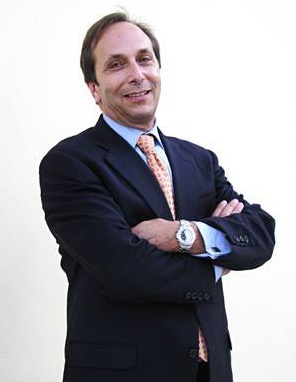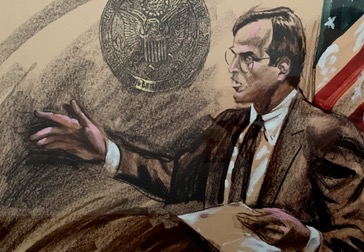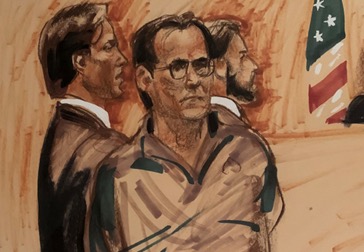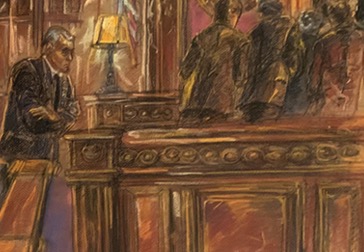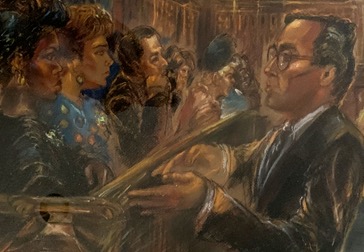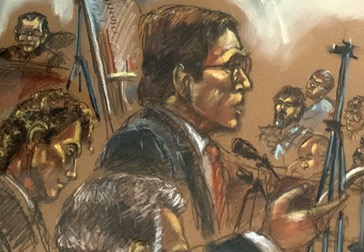The Prospects for Pursuing Corporate Executives
New York Times, September 14, 2015
By: Peter J. Henning
The Justice Department wants the message to go out that federal prosecutors will be taking aim at executives over their role in corporate misconduct by issuing a new policy that requires companies to identify every wrongdoer within the organization, regardless of rank, or be considered uncooperative.
Like a parent stamping a foot at a recalcitrant teenager, Sally Q. Yates, the deputy attorney general, told The New York Times in an interview, “We mean it when we say, ‘You have got to cough up the individuals.’ ”
To make clear that employees need to be thrown under the proverbial bus. Ms. Yates’s memorandum states that to receive “any cooperation credit” — with the word “any” underlined — a company must disclose “all relevant facts about individual misconduct.” The question is whether this will have the effect the Justice Department wants by increasing the number of prosecutions, especially of senior managers.
Focusing on individuals in cases involving corporate misconduct is not really a new approach for the Justice Department. In 2012, Lanny A. Breuer, the former assistant attorney general in charge of the criminal division, said in a speech that “the strongest deterrent against corporate crime is the prospect of prison time for individual employees.” In February 2015, shortly before leaving office, former Attorney General Eric H. Holder Jr. issued a 90-day deadline to prosecutors to report whether there was sufficient evidence to charge executives for their role in the issuance of toxic mortgage-backed securities, although no cases have emerged since then.
“Corporations can only commit crimes through flesh-and-blood people. It’s only fair that the people who are responsible for committing those crimes be held accountable,” said Sally Q. Yates, the deputy attorney general. Credit Alex Wong/Getty Images
So it is not as if the Justice Department ignored individuals, at least if one accepts the reasons offered for the lack of prosecutions for conduct during the financial crisis. In the PBS Frontline documentary “The Untouchables,” Mr. Breuer defended the government’s record, asserting that “with respect to Wall Street cases, we looked at those as hard as we looked at any others, and when a case could be brought, we did.”
In a speech at New York University School of Law last week, Ms. Yates offered a telling admission about how the Justice Department had been dealing with some companies under investigation that could explain the lack of individual prosecutions.
Lawyers usually conduct an internal inquiry and share the results with prosecutors to show cooperation in seeking to resolve the case, often through a deferred or nonprosecution agreement that avoids a criminal conviction. But Ms. Yates pointed out that in the last few years, “companies could cooperate with the government by voluntarily disclosing improper corporate practices, but then stop short of identifying who engaged in the wrongdoing and what exactly they did” while still getting credit that allowed them to avoid criminal charges.
It is not clear who was able to work out such a sweet deal to avoid a conviction while shielding employees from prosecution. Ms. Yates did not identify any companies taking that approach, and I suspect that many white-collar defense lawyers would be surprised to learn that they need not have been as cooperative as many claim they were while still obtaining the benefit of not being indicted. It may be that her insistence on not giving any credit is intended to send a message to federal prosecutors to get in line and not let companies slide with only half-measures.
By conditioning any chance of avoiding prosecution on identifying the individuals involved in the misconduct, the Justice Department is telling companies to undertake more thorough investigations — or else. The challenge is figuring out what the “or else” might be.
If it means bigger fines, then that may not pose much of a threat. Unlike individuals who can face long prison terms for not cooperating, as the recent insider trading prosecutions have shown, making a company pay a few more billion dollars of shareholder capital to resolve a case may not generate much of a reaction.
To signal how seriously corporate misconduct is being taken, prosecutors lately have required banks to plead guilty to criminal charges rather than reach settlements that avoided a conviction. Credit Suisse pleaded guilty in May 2014 to conspiracy for aiding Americans in hiding accounts overseas to avoid taxes. The failure to cooperate was cited by prosecutors as a reason BNP Paribas had to enter a guilty plea in June 2014 to a charge of conspiracy to violate economic sanctions laws. And this past May, five global banks pleaded guilty to conspiring to manipulate foreign exchange rates.
In each of those cases, however, the Justice Department worked to minimize the effect of the convictions to keep the banks from losing their licenses or enduring restrictions that might have a significant impact on their daily operations. The Securities and Exchange Commission further softened the blow by allowing them to continue to take advantage of rules that make it easier to sell securities and provide investment advice to clients. Unlike individuals who suffer collateral consequences from a conviction, the guilty pleas in the bank cases were intended to avoid any significant adverse effects.
The fear that a criminal conviction might put a large company out of business is largely traceable to the obstruction of justice prosecution of the accounting firm Arthur Andersen in 2002 for how it responded to the S.E.C.’s investigation of its client, Enron. Although the conviction was later reversed because of a faulty jury instruction, that came long after its demise.
It will be interesting to see if the Justice Department might try to force an uncooperative company to plead guilty without trying to minimize the consequences, testing whether a corporation will still suffer from the “Arthur Andersen effect” after a conviction. Without a credible threat to back up the demand for detailed information about individual misconduct, the change in policy might not result in any more information that will lead to prosecutions of individuals.
Ms. Yates told The Times that she did not want an internal investigation to “just offer up the vice president in charge of going to jail.” Both sides will have to figure out how much information is enough if they want to avoid testing the “or else” behind the new policy.
As much as the Justice Department might point fingers at companies for not providing enough information about individuals as the reason for the lack of any signature prosecutions from the financial crisis, the new policy puts the onus on prosecutors to decide to pursue charges even in cases that lack clear-cut evidence of wrongdoing. No longer will the standard lament that “proving intent in a white-collar case is difficult” excuse not pursuing individuals if their employers receive credit for cooperation.
Individuals are much more willing to fight charges by going to trial, which means a greater chance of an adverse verdict. The real test of the new policy is whether federal prosecutors are willing to take more risks by charging individuals, especially corporate executives who might not have been involved in the day-to-day decisions resulting in a violation but who had some responsibility for what happened. A “not guilty” verdict does not always mean the case was flawed, but in the high stakes world of corporate prosecutions, it is an ever-present possibility that can lead to a cascade of criticism and second-guessing.
As the pressure to cooperate ratchets up, perhaps a company itself will decide that the risk of fighting charges is one worth taking rather than trying to satisfy the Justice Department’s growing demands for information. Ms. Yates pointed out in her speech that “less corporate cooperation could mean fewer settlements and potentially smaller overall recoveries by the government.” The end result may also be fewer criminal prosecutions than we have seen, an odd outcome from an effort to bring more cases.

